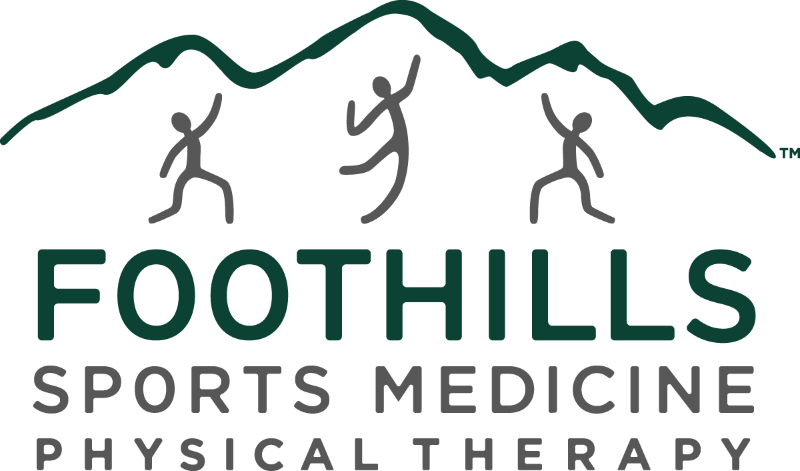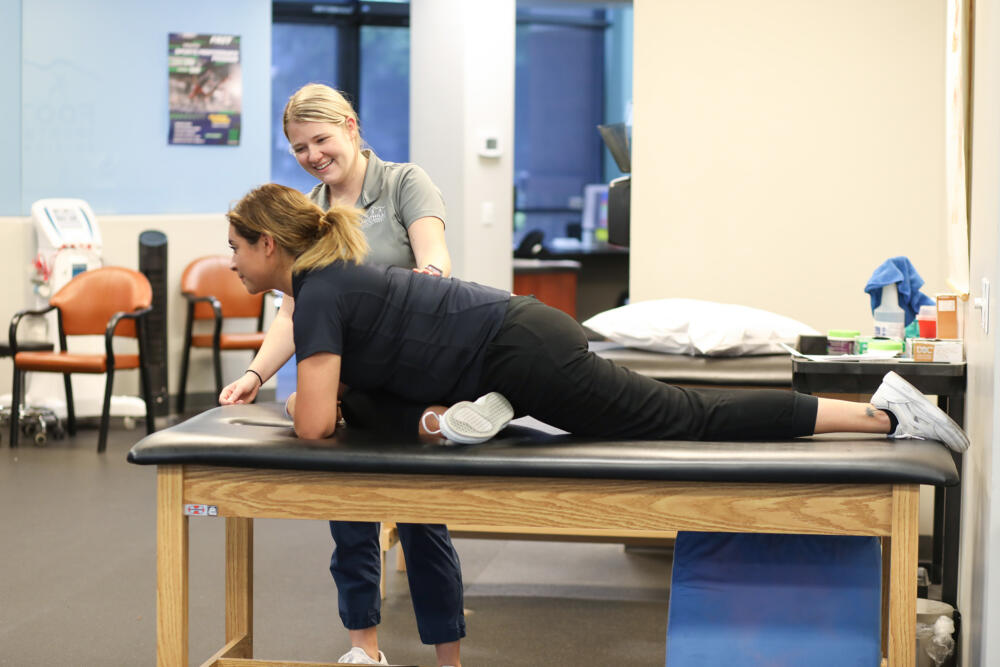by Susan Williams, PT, DPT
There’s a good chance you’ve never considered seeing a physical therapist when planning a baby. Most expecting mothers are unaware of how beneficial physical therapy is for a healthy pregnancy and postpartum recovery. Physical therapy can help prevent and manage pregnancy complications, help you reach your goals, and, most importantly, keep you safe and injury-free. Here are ten benefits of physical therapy for moms-to-be.
1. Eliminates and Reduces Pain
Your body undergoes numerous changes during and after pregnancy. While it is common to experience various aches and pains, physical therapy can help eliminate or reduce pain through natural treatments and hands-on therapy.
Up to 70% of women have back pain at some point during pregnancy, and symptoms persist in up to 65% of women for as long as 12 months after delivery. As experts in musculoskeletal conditions, we can confidently say good posture is always important, but during pregnancy, it’s essential, as poor posture can lead to pregnancy back pain. Physical therapy can also help treat hip pain and common conditions during pregnancy, such as sciatica.
Related Content >> How To Improve Posture: Stretches, Exercises and Tips from the Pros
2. Decreases Pelvic Pain & Pelvic Floor Dysfunction
Many barriers expecting mothers might face prevent them from exercising while expecting. Some common issues include nausea, fatigue, incontinence, breast tenderness, back pain, and constipation. It can often be difficult for women to exercise comfortably while pregnant. Pelvic floor physical therapists specialize in women’s health to help women deal with their individual needs and pregnancy demands on the body. They have a more profound knowledge of women’s issues throughout their lives and can help with specific challenges and conditions.
Related Content >> Pelvic Floor Physical Therapy: Causes, Symptoms, Benefits
3. Increases and Maintains Strength
After having a baby, many women want to physically be back to where they were before conceiving. Physical therapy before delivery can give you the strength you need for delivery and help you return to exercise safely after delivery. Increasing strength might be a MUST for those with more than one baby at a time.
4. Heals Diastasis Recti
Diastasis recti abdominis (DRA) is a core and pelvic floor dysfunction symptom. It is a condition that occurs when two halves of the rectus abdominis muscle that runs down the middle of the abdomen separate. It is most often associated with women after pregnancy, especially those who have had multiple pregnancies. However, most women will have some degree of DRA by full-term pregnancy.
A physical therapist will assess DRA’s width, depth, and function and create a treatment program to regain strength and reduce the separation of your abdominal muscles. Physical therapy while pregnant can help DRA heal faster after pregnancy and prevent tearing.
5. Improve Body Mechanics
Your physical therapist can help you become more comfortable by addressing pelvic asymmetry, correcting posture, and educating you on correct body positioning and proper movements. This may be helpful for completing tasks such as lifting, carrying, and caring for children. If you are an expecting mom and have other small children at home, you may benefit from learning how to carry your baby and other young ones in a safer and healthier way.
6. Prevent Injuries
A physical therapy program with the right exercises and treatment tools can keep you injured and pain-free.
7. Helps Keep Expecting Mothers Active
Movement during pregnancy helps keep both the mom and baby healthy. Plenty of research has also shown that exercise improves your body image, self-esteem, and energy more than inactive moms-to-be. A strengthened cardiovascular system will give you more endurance, and the right strength program will allow you to finish tasks with less effort.
8. Reduces Pregnancy-Related Complications
Physical therapy can also have a positive impact on pregnancy-related complications and has been shown to reduce the risk of the following:
- Gestational diabetes
- Preeclampsia
- Preterm birth
- Depression and anxiety
- Musculoskeletal pain, including low back pain
9. Improves Labor and Delivery
Expecting moms who have physical therapy regularly help prepare their bodies for labor and delivery. Physical therapy exercises can increase strength and flexibility, so you have an easier time pushing and laboring.
10. Improves Sleep for Expecting Mothers
According to the American Pregnancy Association, most women have trouble sleeping by the end of their pregnancies. Physical therapy will help you work off excess energy and lull you into a deeper, more restful slumber. Physical therapists may give a home exercise program, but remember not to do the exercises at least 3 hours before bed.
Is Exercise and Physical Therapy Safe During Pregnancy?
According to the American College of Obstetricians and Gynecologists, expecting mothers without medical complications should exercise moderately for 30 minutes daily. This is the same recommendation for women who are not pregnant and women who have had children. However, only 11-17% of pregnant women adhere to this recommendation. Even those exercising before becoming pregnant often decrease the duration and intensity of their exercise.
Related Content >> 3 Myths About Exercise & Pregnancy
Motherhood is not one size fits all. That’s why our physical therapy and pelvic therapy programs are personalized to meet your unique needs and goals. If you have more questions about physical therapy during your pregnancy or any other condition you might be experiencing, feel free to contact your local Foothills Sports Medicine Physical Therapy clinic today! Whether you are a new mom or an experienced one, we have a program that works for you and your journey in life.







